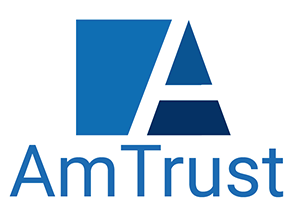Consulting and commercial insurance options to protect your business.
Do you review all of your insurance policies annually?
Streamline your Commercial Insurance.
Our services include a thorough assessment of your organization's insurance policies, ensuring that the coverage matches the scale and nature of your business. We will conduct a comprehensive review to identify any potential risks or vulnerabilities that require immediate attention, safeguarding your most valuable assets.
Ready to save on your premiums?
Want to reduce your risk of increasing premiums?
We offer a wide range of insurance services.
Comprehensive Policy Review
Does your insurance policy cover what you think it does? Do you wonder if you’re fully protected for all of your operations? A professional insurance agent will read through your policy documents to identify areas of weakness and areas of improvement. They will make sure that your policy does what you think it should and explain in as much detail as you desire.
We are experienced at filling coverage gaps and recommending additional protections that are available to a businesses of your caliber. We'll take the time to explain how insurance coverage works and let you decide whether you want to finance the risk with an insurance policy.
Loss Control Assessments
Not all agents are equipped to provide loss control assessments. Most agents rely on the insurance carrier to make recommendations and offer assistance with loss mitigation and asset protection. Our agents will take a pro-active approach in assessing your unique business and offer advice and assessments to help you identify vulnerabilities and potential risks to your valuable assets.
Our integrative approach to business means that we have access to human resources, payroll and group benefits experts who collaborate daily to provide the best customer experience available. That ensures that your business is checked and cross-checked across industry trades to ensure that nothing is getting missed.
Multiple Carriers and Products
Simco has access to multiple insurance carriers and brokers with a wide array of products and services, but not all products and services are built the same. It takes an expert to navigate through the insurance products to find just the right one for unique needs of each business. Let us take over the navigation and see if we can find the right one for you!
It is easy to switch insurance from company to company without a hassle, and we always provide top notch customer service and response times. Our knowledgeable staff is passionate about service and doing what’s right for the customer in an unbiased and objective way. When you call Simco you are going to speak to a real live person and get an answer fast.
Sign up for our newsletter.
Need personal insurance as well?
We offer personal insurance
Do you or your family need home, auto, life, disability, health, dental, or Medicare insurance? Or if you're an employer, would you like us to help your employees with Medicare? Send them to SImco!
Our dedicated Personal Insurance Team of licensed agents, offers a comprehensive selection of insurance options, including home, auto, medical, dental, Medicare and more! Our licensed agents assess many carriers to provide tailored and affordable solutions for you and your family. Whether you're a business helping your employees, or an individual in need of insurance, we've got you covered.
Ready to save? Have a question?
We have a lot to say about Insurance
Recent Blog Posts.













